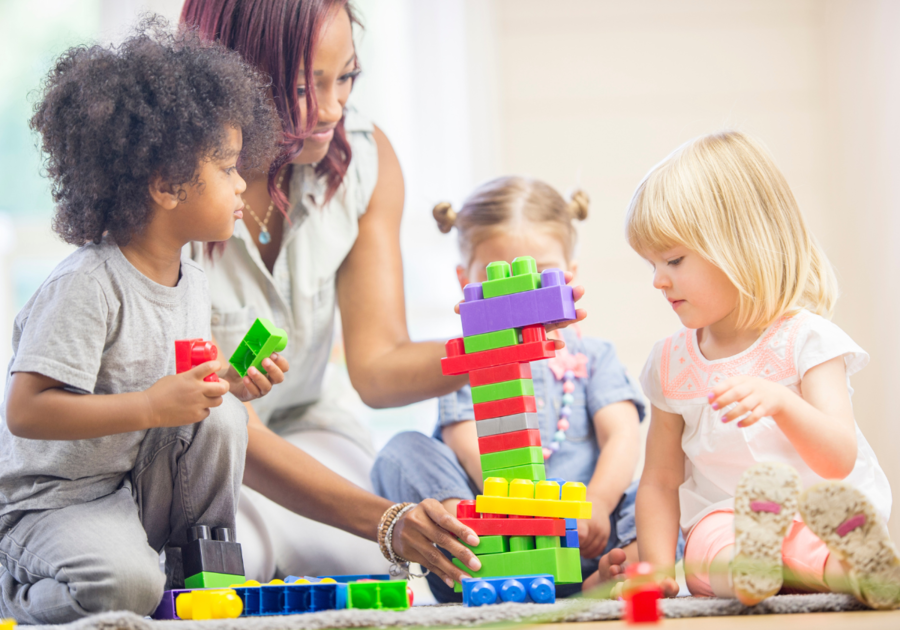Social development occurs throughout life and shapes how we recognize, interpret and respond to social situations. Parents can help children at home to develop these important lifelong skills. Through their relationships and connections with others, children build a sense of who they are and where they fit in the social world. By actively participating in these relationships, it shapes the ways that adults and their peers relate to them.
Let’s say your child comes home from school, visibly upset because her best friend played basketball at recess instead of playing with her. What is your first reaction? Is it to call the teacher, bad mouth the other child, call that parent? Maybe you think it’s no big deal and your child should just get over it. This is a teachable moment! Your first reaction should be to acknowledge your child’s feelings whether you think she is overreacting or not. A statement like, “Oh I see that made you very upset. Do you want to talk about it?” Then discuss the situation and come up with coping solutions. Could she have joined basketball? Found someone else to play with? Did her friend say something mean to her? Make a list of possible games for recess with your child. This helps your child develop appropriate coping skills. In addition, encourage your child to develop friendships with many children and not just depend on one friend to play with all the time. This helps your child to become flexible. A play date with a classmate helps form a bond that will carry over into school. This also provides the opportunity for you to observe your child in a social situation. Most social issues occur at recess because it is unstructured and there are typically a few classes put together. If the problem does continue to happen after your child has tried several strategies, then contact your child’s teacher to help with solutions.
To nurture your child's social and emotional development, it is important that you engage in quality interactions like these. Our job as parents is not to fix the problem but to help our children develop the skills needed to navigate social situations. It goes along with the proverb, “If you give a man a fish, he will eat for a day. If you teach a man to fish, he will eat for a lifetime.” Same holds true for social skills. Parents are a child’s first role model and continue to be who they look to for guidance and support. Children who use appropriate manners are perceived as being friendlier, so encourage politeness, eye contact and respect. Model appropriate social skills or tell stories about your own friendships. Helping your child to see things from someone else’s perspective is helping your child to develop empathy. Read books about social skills, there are many out there depending on your child’s age.
Children’s understanding and behaviors are closely interwoven with emotions and temperament and the values and attitudes of those around them. Through ongoing interactions with the important people in their lives, children refine social skills such as turn-taking, listening, cooperation and respect to help them build positive relationships and friendships. These skills will greatly impact their ability to achieve success throughout life; in school, in their future careers, and, very importantly, in their most significant close relationships.".
Maryanne Reda MS. Sped
Clubhouse Stars, Owner



